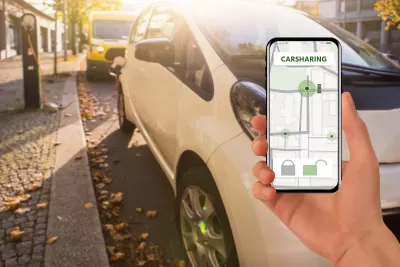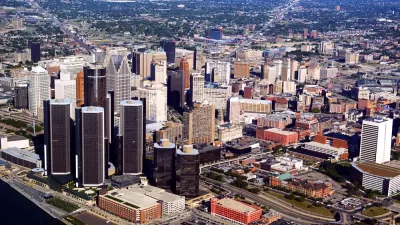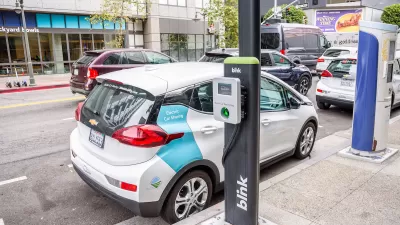The model comes with high costs that make it unsustainable without subsidies.

Writing in Next City, Nithin Coca attempts to suss out why car-sharing companies keep going out of business: largely, their for-profit model, which doesn’t lend itself to the type of service coverage they would need to provide.
According to Coca, “For-profit car-sharing models have a fundamental challenge: They need to set prices high enough to at least break even. Often, that means prices are too high for those in low-income communities, who tend to have less access to cars and public transportation in general.” For this reason, companies have stuck largely to more well-off neighborhoods where residents are already more likely to own cars.
One new California car-sharing service, Míocar, operates in low-income areas supported by a grant from the California Air Resources Board. “It’s also seeing high utilization rates, with cars sometimes booked months in advance.” However, Caroline Jane Rodier, Associate Director of the Urban Land Use and Transportation Center at the University of California, Davis, warns that “Without subsidies, it’s not going to work.”
If successful, Míocar “could point towards a new non-profit model for car-sharing, where the focus is on equity, access and climate benefits from reduced emissions and fossil fuel consumption.”
Coca points out that ‘free-flowing’ car-sharing systems are thriving in other countries, perhaps signaling a stronger demand in places where car ownership is itself more expensive.
FULL STORY: Another Car-Sharing Startup Is Dead. Why Is Car Sharing So Difficult?

Planetizen Federal Action Tracker
A weekly monitor of how Trump’s orders and actions are impacting planners and planning in America.

Maui's Vacation Rental Debate Turns Ugly
Verbal attacks, misinformation campaigns and fistfights plague a high-stakes debate to convert thousands of vacation rentals into long-term housing.

San Francisco Suspends Traffic Calming Amidst Record Deaths
Citing “a challenging fiscal landscape,” the city will cease the program on the heels of 42 traffic deaths, including 24 pedestrians.

Defunct Pittsburgh Power Plant to Become Residential Tower
A decommissioned steam heat plant will be redeveloped into almost 100 affordable housing units.

Trump Prompts Restructuring of Transportation Research Board in “Unprecedented Overreach”
The TRB has eliminated more than half of its committees including those focused on climate, equity, and cities.

Amtrak Rolls Out New Orleans to Alabama “Mardi Gras” Train
The new service will operate morning and evening departures between Mobile and New Orleans.
Urban Design for Planners 1: Software Tools
This six-course series explores essential urban design concepts using open source software and equips planners with the tools they need to participate fully in the urban design process.
Planning for Universal Design
Learn the tools for implementing Universal Design in planning regulations.
Heyer Gruel & Associates PA
JM Goldson LLC
Custer County Colorado
City of Camden Redevelopment Agency
City of Astoria
Transportation Research & Education Center (TREC) at Portland State University
Jefferson Parish Government
Camden Redevelopment Agency
City of Claremont





























